We all love a healthy, happy dog when we see one, but are your dog nutrition methods matching the needs of your four-legged companion?
The area of dog nutrition is a big one.
With a number of market-leaders in dog foods to hundreds of blogs being written on this topic, the choice of what to feed dogs seem endless.
With so many choices, comes so much of confusion. Doesn’t it?
We know whether you’re a new dog parent or a relatively old one, the best thing for dog nutrition always seems endless.
As our attempt to bring some clarity on this problem of yours, we have come up with a definitive guide to dog nutrition:
- Dog Diet Plan (For every meal)
- 6 Essential Dog Nutrients
- Dog Nutrition By Age
- Common Dog Nutrition Mistakes
All these will help you become a better dog parent and also provide you with a healthier, happier dog through the means of better dog nutrition.
So, go on, have a good read!
Dogisworld Facts: Give your dog some ‘fresh’ food. There’s nothing better to complement health than some fresh food in a dog diet.
Table of Contents
1. Dog Nutrition Plan (Meal-Wise)
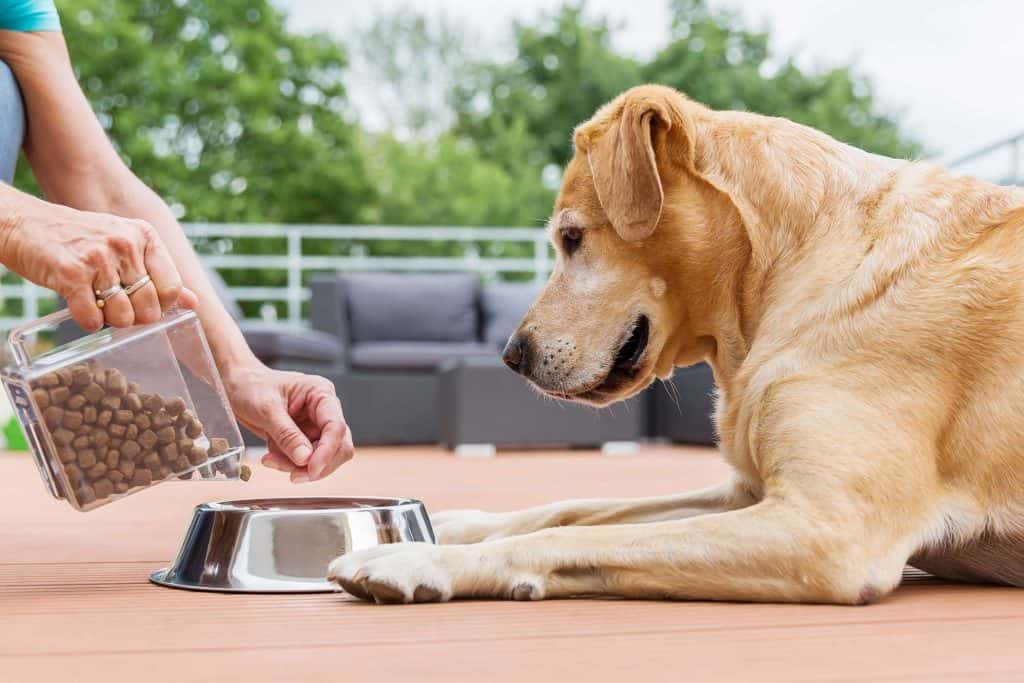
A. First Meal
- The first meal for your dog should be in the early morning, say around 7-8 in the morning.
- You have to be consistent with this time as your dog gets acquainted with a schedule very quickly.
- The dog nutrition needs will change over time with his age.
- To best cope with this problem, give your dog specific age food or all-age food.
- You can also take suggestions from your vet for dog nutrition to make important additions to the dog diet plan.
B. Snacks And Water:
- The ideal schedule for water should be from the start of the day, with half-filling the bowl every 4-5 hours.
- Remember, this is an ideal case only and you should immediately change it when you see your dog more thirsty than usual.
- Nevertheless, keep a source of water accessible to him at all times when he’s busy playing, or training.
- Snacks can be given to a dog at any time but remember not to overdo it.
- These snacks are certainly a great tool for dog training but large quantities can easily cause damage to a dog diet plan.
- You should also keep check of the calorie levels of the snacks as high levels can also lead to conditions such as obesity in a dog.
C. Second Meal:
- The final meal of the day for your dog should be around 6-7 pm in the evening.
- The content of this meal is similar to the first one but you can bring some changes in the diet by yourself.
- A healthy change can be moving from packaged dog foods to more organic ones.
- There are a number of DIY dog foods you can find on the internet but make sure you ease your dog to these changes.
- If your dog has special dog nutrition needs, you can add dog nutritional supplements in his meal but only under some expert supervision.
Dogisworld Facts: Dogs can eat human food. That doesn't mean you can give him the unhealthy stuff. Healthy food items like whole foods are good for his health.
2. 6 Essential Dog Nutrients:
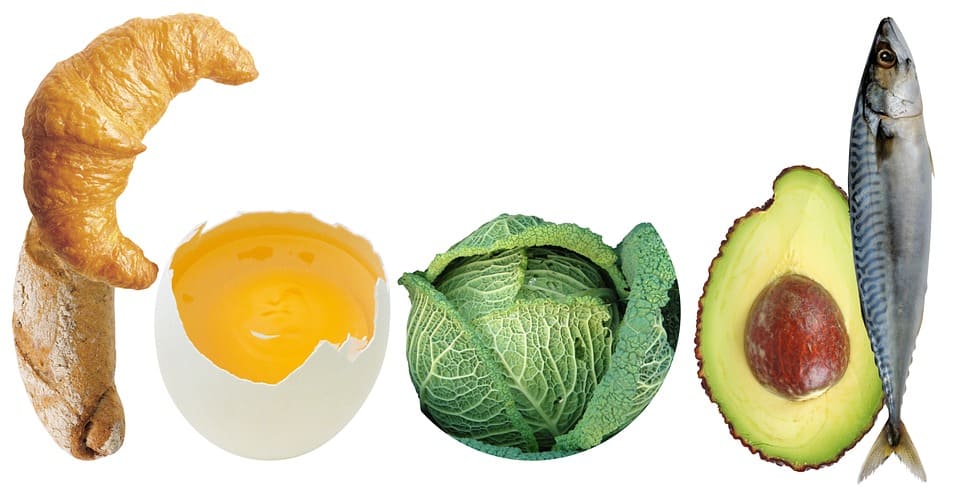
A. Protein:
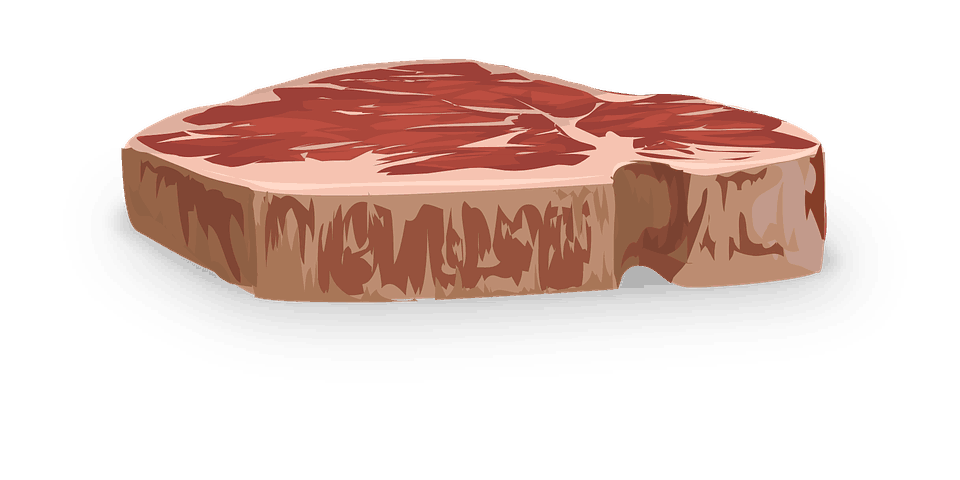
- Why Proteins Are Needed In Dogs:
Protein is required to give energy to your dog.
It contains amino acids which are essential to dog nutrition.
They are necessary to maintain body structure i.e., think strong hair, skin, nails, muscles, and bones.
- Essential Protein Intake In A Day/Month:
The adequate protein intake quantity ranges from 25-60 g in a day.
This figure is highly dependent on the age of your dog and his medical condition.
- Sources:
Animal sources of Protein include meats, fish and eggs.
Plant-based sources for protein are beans and lentils.
B. Fats:
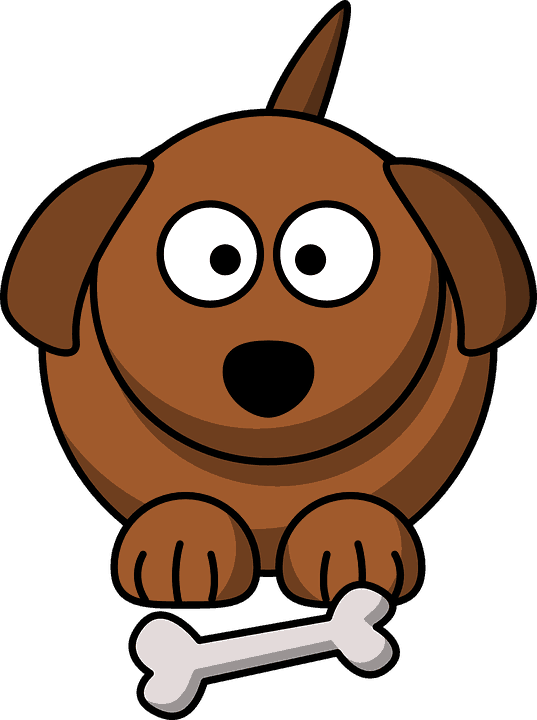
- Why Are Fats In Needed In Dogs?
Fats are the most concentrated source of energy.
It also provides essential fatty acids like omega-3 and omega-6.
- Essential Fat Intake In A Day/Month:
The adequate fats intake quantity ranges from 15-20 g in a day.
This figure is highly dependent on the age of your dog and his medical condition.
- Sources:
Fats can be obtained from Low-mercury fish and fish oil.
Plant-based oils can also be a source, such as flaxseed and hempseed
C. Carbohydrates:

- Why Carbohydrates Are Needed In Dogs?
Carbohydrates provide glucose to the body which runs the body.
However, dogs can synthesize glucose from protein and fats which makes carbohydrates not essential for dog nutrition.
Although, dogs need them as a source for a number of vitamins, minerals, and antioxidants.
- Essential Carbs Intake In A Day/Month?
The amount of calorie intake is highly dependent on the age, physical activeness and weight of the dog.
For puppies it’s around 990 kcal/day, for an adult it ranges from 200 -2000 kcal/day and for older dogs, it can be from 300-2500 kcal/day.
- Sources Of Carbohydrates:
Sources of Carbohydrates for dogs can be from Dog-friendly vegetables like carrots, fruits, legumes, and gluten-free grains.
D. Vitamins:

- Why Vitamins Are Needed In Dogs?
Vitamins are needed in dog nutrition for proper metabolic function.
The body of a dog cannot synthesize vitamins themselves hence, there’s a need for it to come from the outside.
- Essential Vitamin Intake In A Day/Month:
Vitamins that are primarily needed for dogs are Vitamin A, D, and E.
The required intake in a day for Vitamin A is around 370 µg, for Vitamin D is around 3.4 µg and around 8 µg for Vitamin E.
- Sources Of Vitamins:
Vitamins are obtained from a complete diet that contains organ and muscle meat.
Dog-friendly plant-based foods are also a good source of vitamins.
E. Minerals:

- Why Minerals Are Needed In Dogs?
Minerals are the inorganic compounds that are needed in dog nutrition to perform metabolic functions.
The body cannot produce minerals on its own and hence, it’s required from the outside sources.
- Essential Minerals Intake In A Day/Month:
Minerals also differ in intake amount depending on their type and requirement.
Minerals such as Calcium, Phosphorus, and Potassium are needed in the range of 1 gm/day whereas Iron is needed at around 7.5g/day.
- Sources Of Minerals:
Different foods items contain different quantities of minerals.
Meat has a high phosphorus content.
Bone is high in calcium mineral.
Organ meats give the body copper and iron.
F. Water:
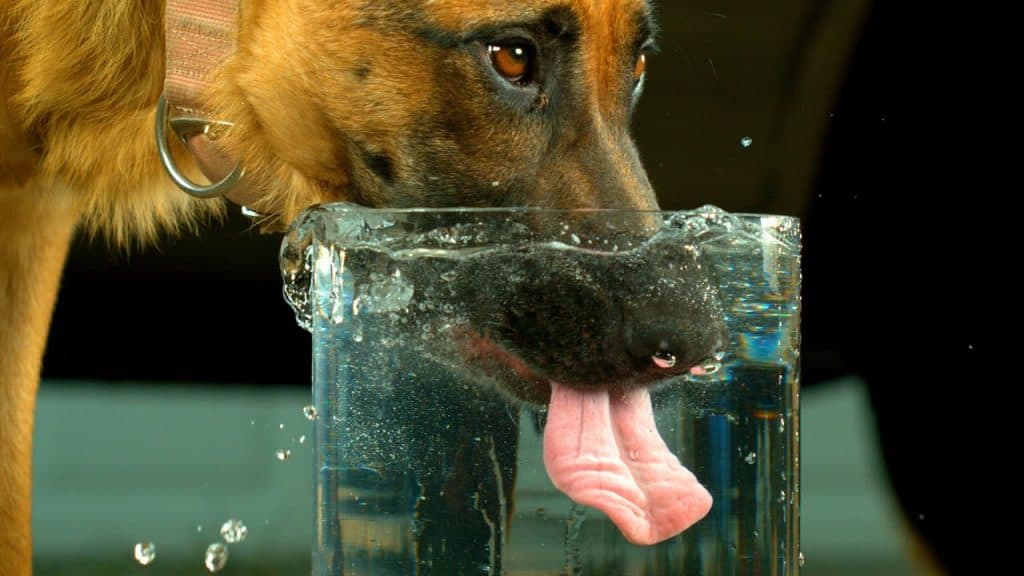
- Why Is Water Needed In Dogs?
Water is necessary for a dog’s diet to maintain body weight as 70-80% of the body is made up of water.
It has various other functions like carrying nutrients in the body, regulating the body temperature and many more.
- Essential Water Intake In A Day/Month:
Water intake primarily depends on your common sense to see if your dog needs more water or not.
The rule is of an ounce of the total weight of your dog.
However, the amount of water in dog nutrition changes with hot weather, physical activity.
- Sources Of Water:
The best tip to avoid dehydration in your dog is to keep a source of water available to your dog at all times.
It’s good to know what to feed dogs but it’s more important to know what not to feed dogs.
3. Dog Nutrition By Age:
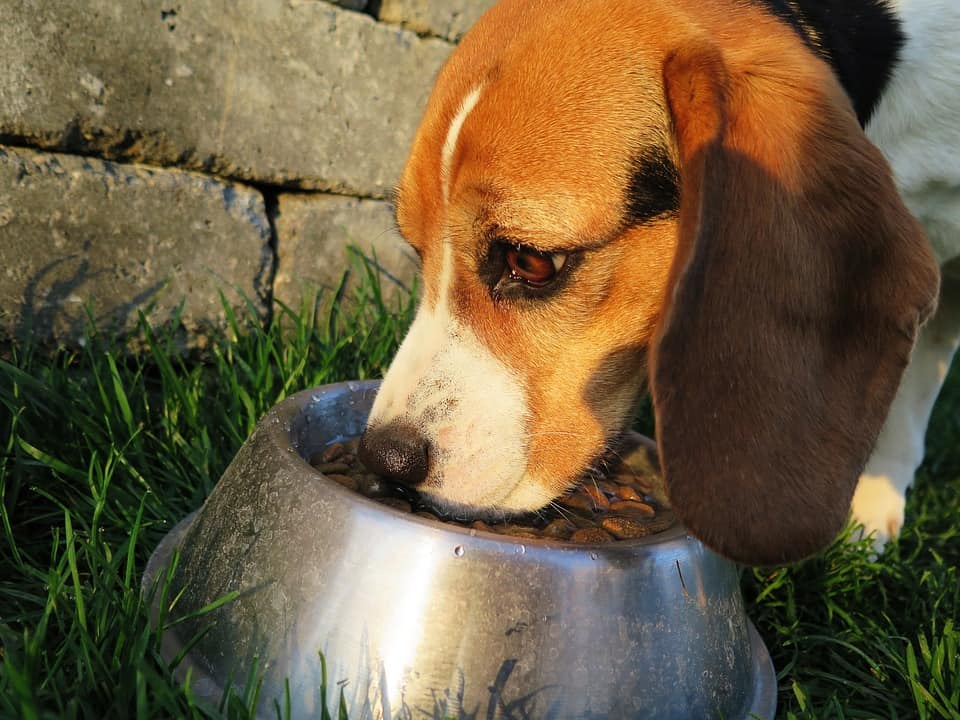
A. Puppies (Under age 1)
- Puppies start out with a special diet with a similar diet plan like a human child i.e., a number of small meals during the day.
- The quantity of food to be given depends upon the individual dog nutrition requirement and the metabolism of the dog.
- There’s no need to make sudden changes in the diet. All the changes should be made gradually with time.
- The unhealthy human food items like fries should be avoided in case of a growing dog.
B. Adult Dogs (1-7 years)
- A dog is considered an adult when he reaches 90% of his body-weight.
- Ideally, you should prefer feeding an adult dog twice a day for better digestion.
- A dog’s nutrition is dependent on factors such as his size, his age, and his daily exercise habits.
- You have to keep check of the weight of your dog to make sure whether or not you’re overfeeding the dog.
- You can give treats to your dog but make sure they are low on calories as you’re feeding him these like snacks only.
C. Older Dogs (Age 7+)
- If your dog is getting older now, you have to keep feeding him at his familiar times with lower quantity and frequency being twice a day.
- Less calorie content in the diet is also advisable as most dogs increase their weight with age.
- A vet’s opinion is advisable here as your dog’s diet plan will become much more complex with age.
- A healthy addition to this diet plan could be fiber-rich items such as fruits and vegetables as most dogs suffer from constipation in older ages.
Dogisworld facts: Check Dog Food Labels. They list the nutritional content of the food which may contain things that are not good for your dog.
4. Common Dog Nutrition Mistakes:
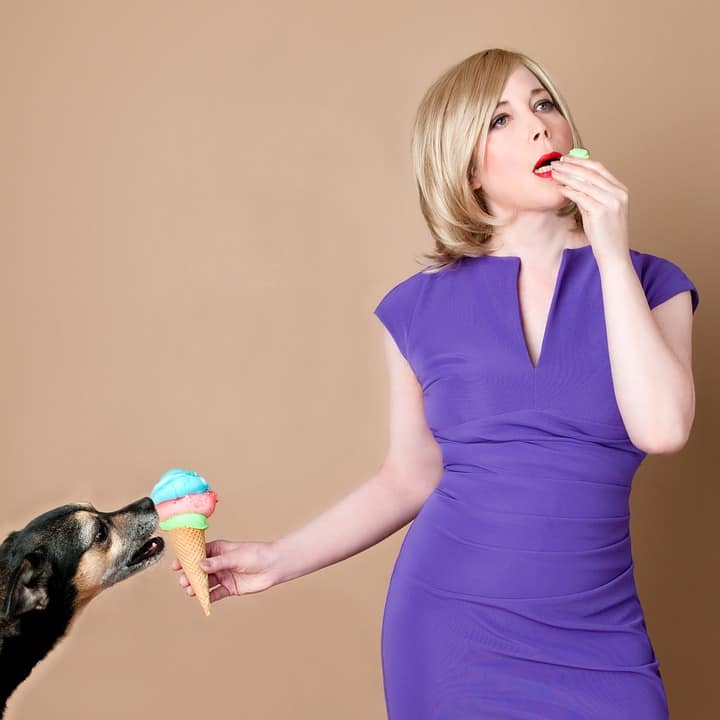
A. Feeding All Kinds Of Human Food:
- All kinds of human foods are never healthy in your dog’s diet.
- Some of the items like chocolates can even be fatal to your dog’s health.
- However, nutritious food items such as whole foods are generally beneficial and can be fed to your dog.
B. Inconsistent Food Plan:
- Your dog’s food plan needs to be consistent in terms of how many times you feed him.
- For puppies its several times a day while it goes twice a day for an adult dog.
- Also, regular access to water is also necessary to not let dehydration take place in your dog.
C. Difference In Intake And Physical Activity:
- The amount of food given to your dog should be proportional to his physical activities.
- If the intake is higher than the activities, it will naturally lead to dog obesity.
- Also, if your dog seems hungry even after the meal is finished, then you need to increase the intake to match his needs.
D. Dangerous Food Intake:
- Some food items, in particular, can be extremely dangerous in your dog nutrition.
- You need to show extreme care while keeping such food around your dog.
- These food items include those with extra sugar or salt, spicy and/or chilly food items or raw meat, eggs.
E. Sudden Change In Everyday Diet:
- A change is needed from, time to time in your dog’s diet to keep a healthy appetite.
- However, a sudden change in dog diet plan can lead to serious health issues.
- Usually, what you need to do is make gradual changes, see if your dog likes it or not and then make it permanent in his diet.
F. Giving Too Many Treats:
- Treats are to be given as snacks to your dog.
- It proves to be a major help when training your dog.
- However, if given too much it can lead to extra calories which may cause excess fat in your dog.
This was all about Dog Nutrition from our side.
Wait a moment, we would really love to hear back from you in the comment section.
Do share with us, your nutrition hacks and the problems you face while trying to give a balanced diet to your dog.
And, have you taken any steps in tackling those problems?
As always you can reach us in the comment section for anything and everything related to dogs.
Happy Petting To You Guys!



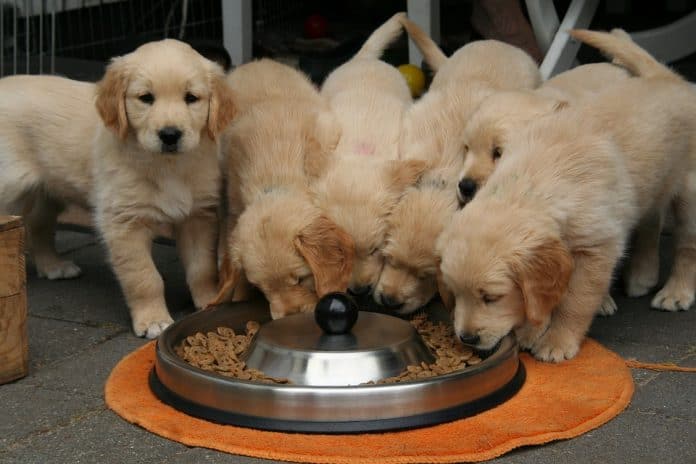









[…] case of such dog diseases, with the ongoing treatment you should provide a high-digestible diet to your […]
[…] needs to be fed a proper protein based diet, always try to give your dog everything in the right proportion and fulfill its dietary […]
[…] Bull Terrier is fighter dogs, they need a good feeding routine from their puppyhood to build them up to adults they’re supposed to be – strong, muscular and […]
[…] To remember something about Dachshunds, you need to know that they are innate foodies, so as a Dachshund owner you must know whether your sausage-shaped friend is eating right. […]
[…] adult dogs require 1-2 cups of food and require feeding twice a […]
[…] Honestly, we can have a separate article on the topic of pet food. […]
[…] them adult food will keep them away from the required nutrition and hinder the appropriate growth required for the puppy to […]
[…] dogs like German Shepherds require a healthy and heavy diet corresponding to their physical […]
[…] Nutritional food with ample amount of water is a must to raise a healthy beagle at home. […]
[…] 10. Care For Their Food: […]
[…] a Rott must have a high value of proteins and lover value of […]
[…] are to be fed nutritional food which helps in healthy growth because keeping them away from required nutrition may hinder their […]
[…] a pet parent, you need to give the right amount of dog nutrition to your […]
[…] dogs generally do well on high-quality dog food, whether commercially manufactured or home-prepared with your veterinarian’s supervision and […]
[…] to dog-nutrition for questions about nutritious food for your […]
[…] Feeding fresh and raw food is always a safer option for your dog’s health. Ensure giving your dog a balanced diet and nutritious food. […]
[…] Read our blog on Dog Nutrition for more nutritional […]
[…] allergy, then you should definitely, but only remove wheat from the diet. Rice, maize, and oats are very nutritious and important for a dog – they should be avoided as a last […]
[…] the core part of the orange fruit, the outer skin of the orange has a lot of vitamin C and other surplus minerals and vitamins in pure and undiluted […]
[…] Diet – A nutritious diet is very important to build your dog’s immunity. You can also give him some vet prescribed […]
[…] Diet – A nutritious diet is very important to build your dog’s immunity. You can also give him some vet prescribed […]